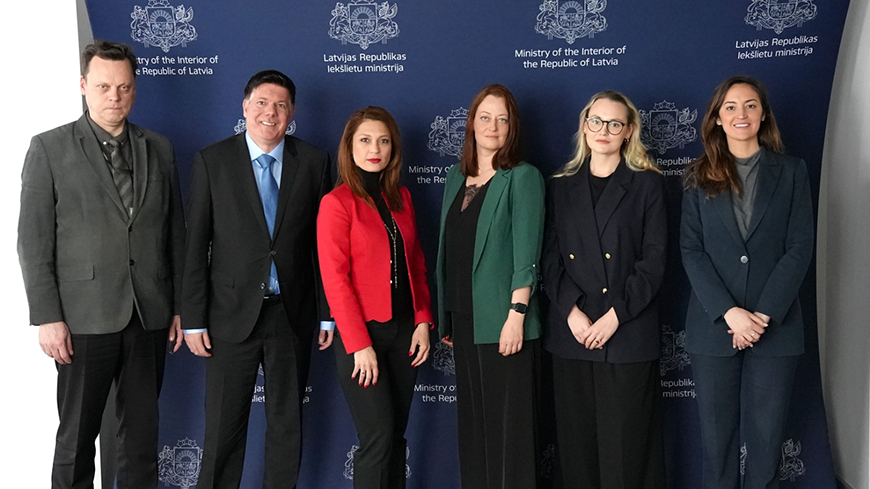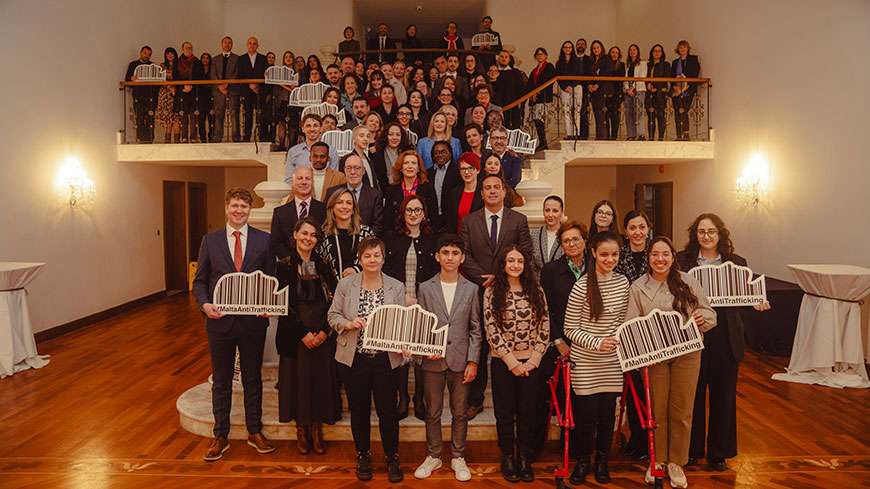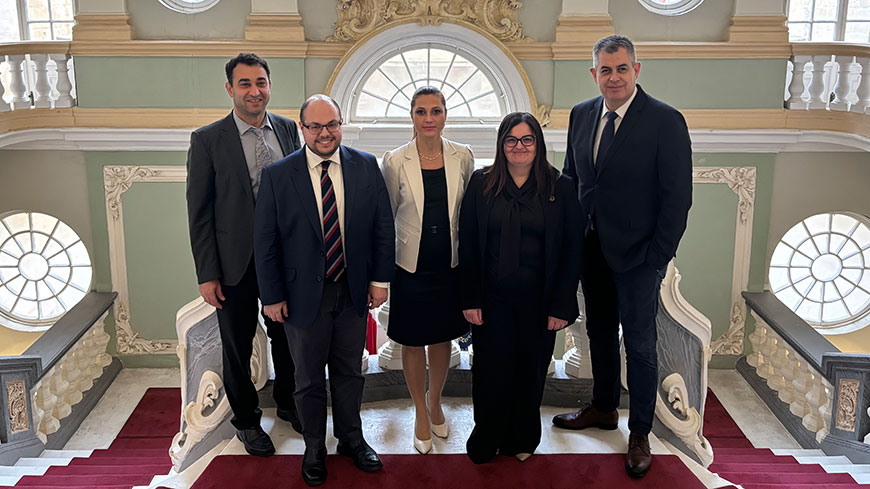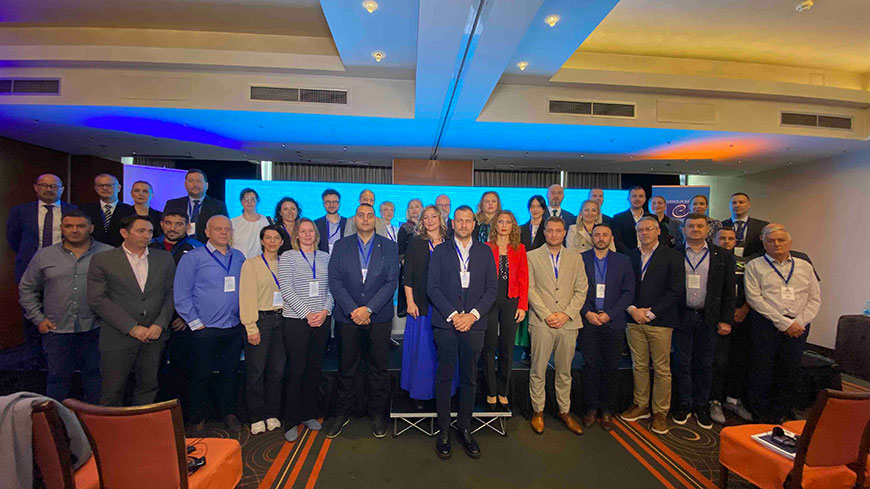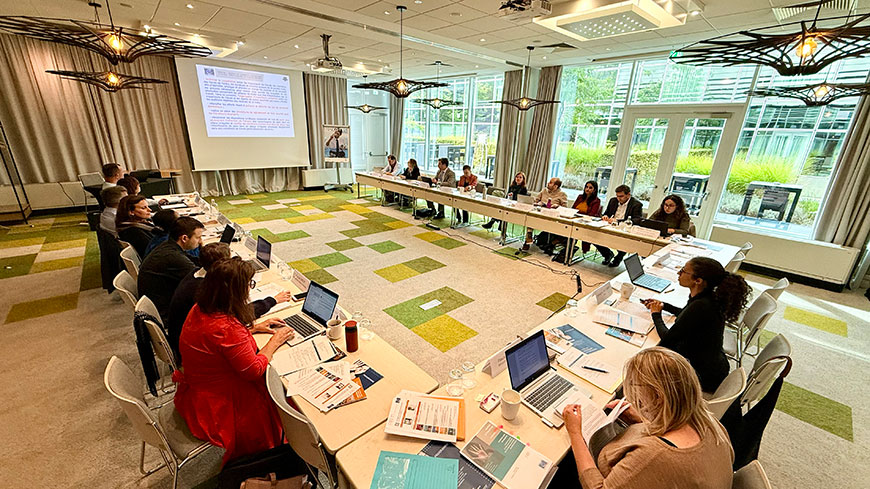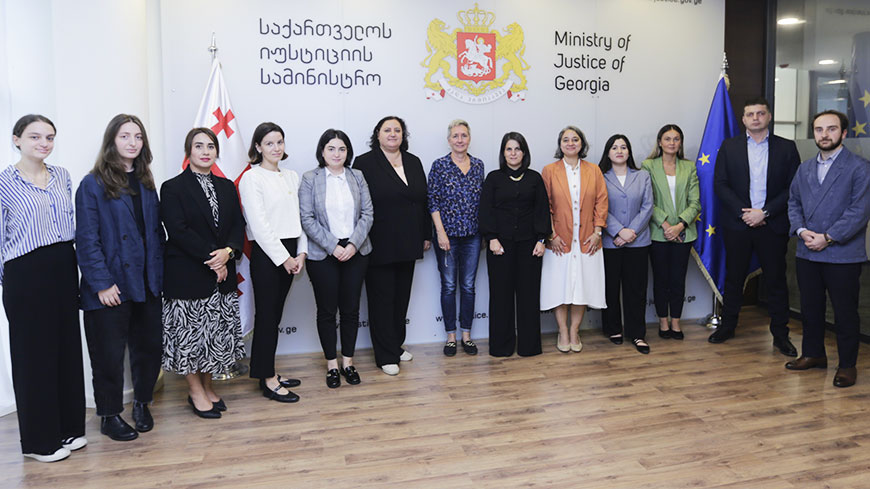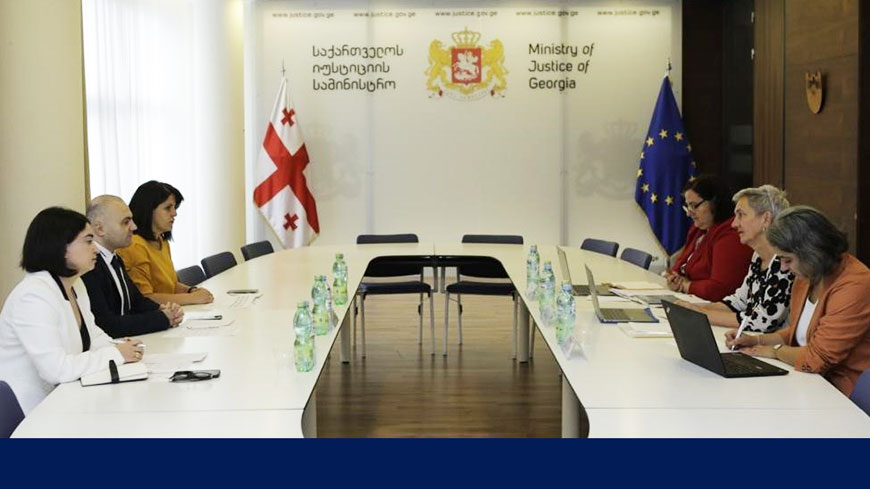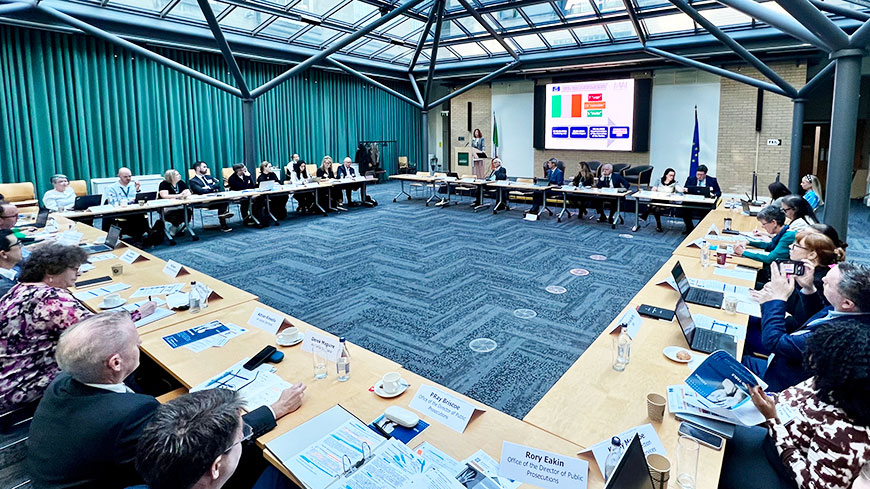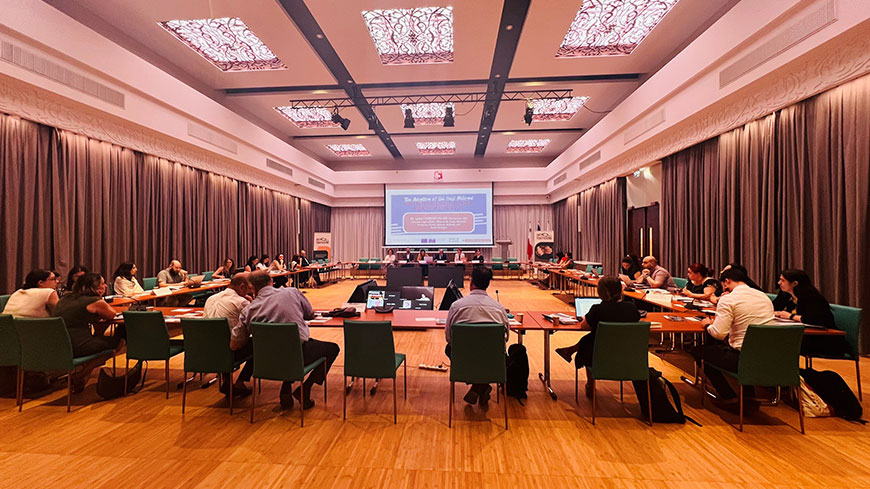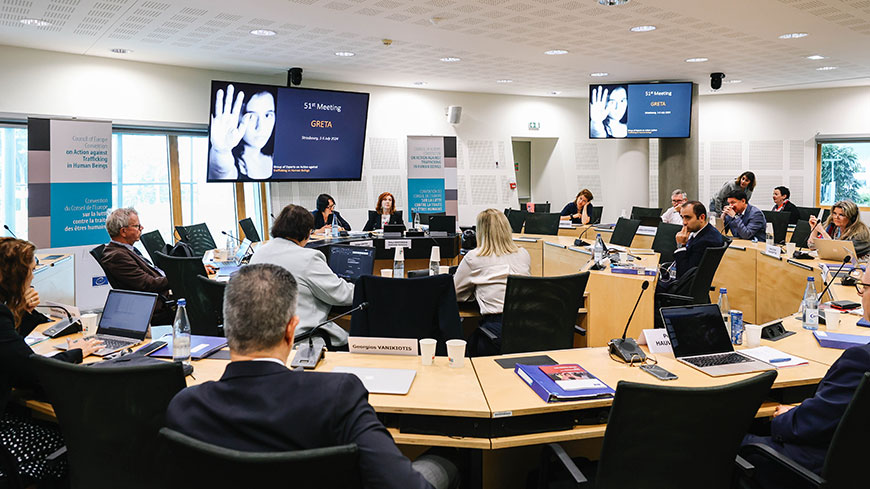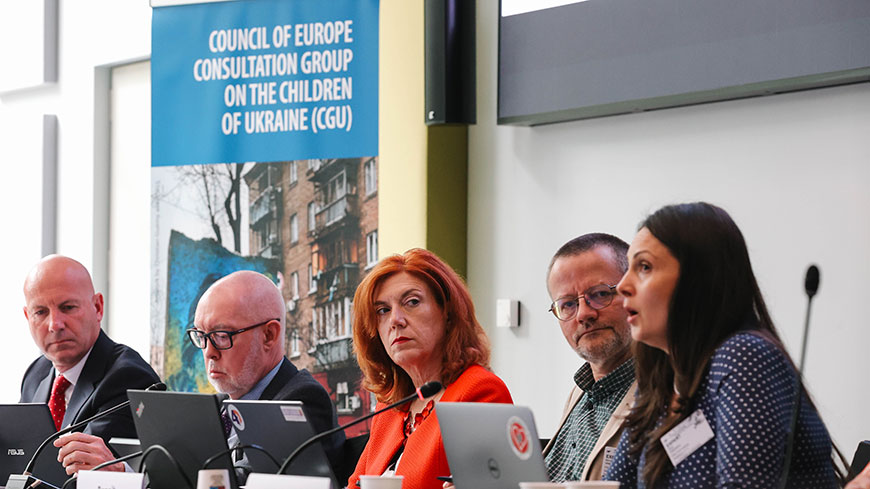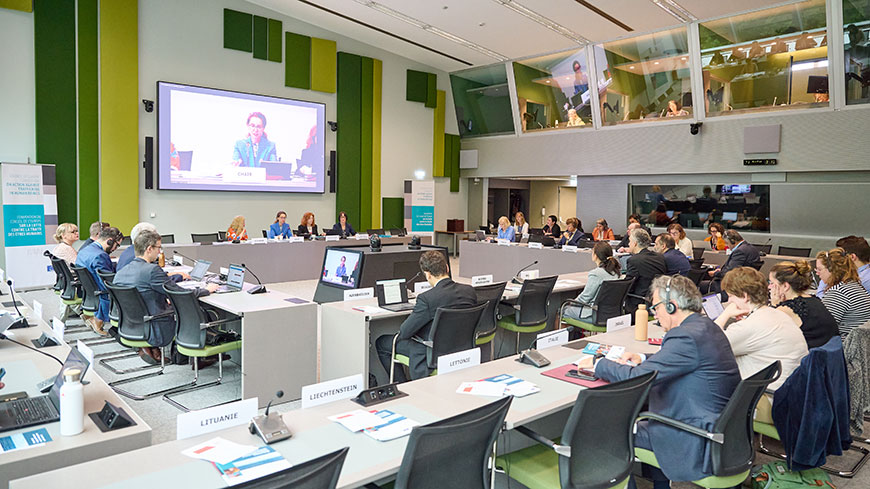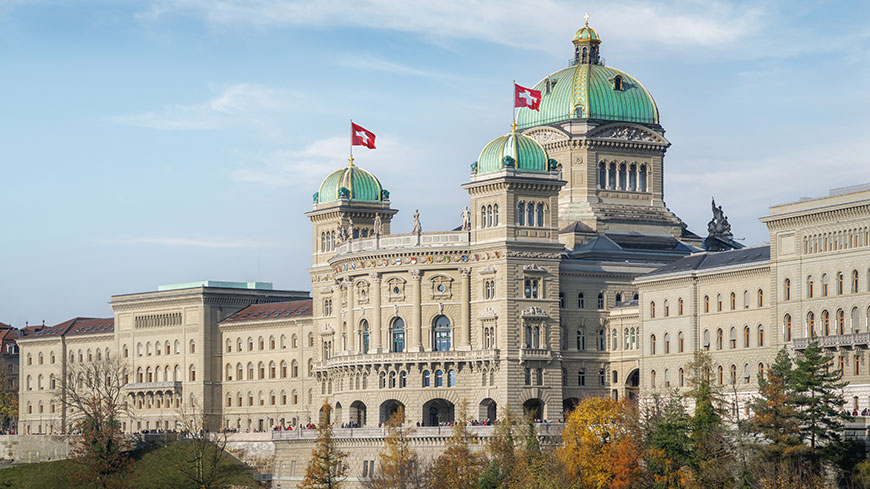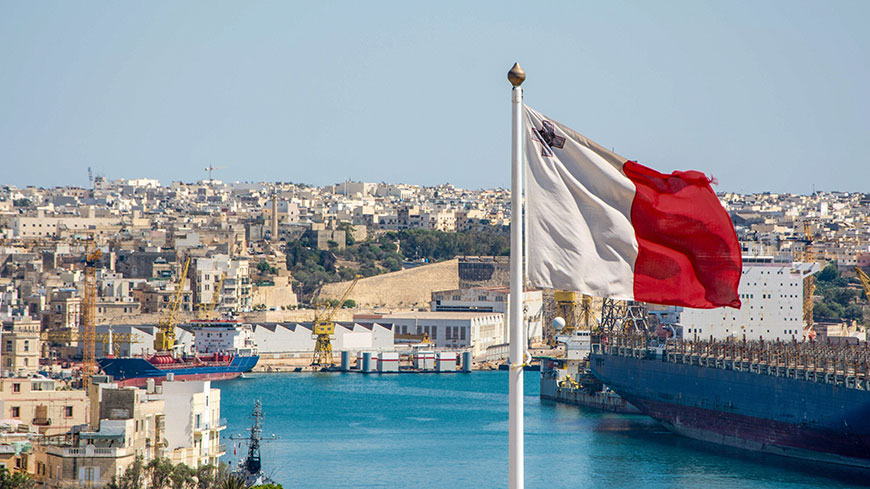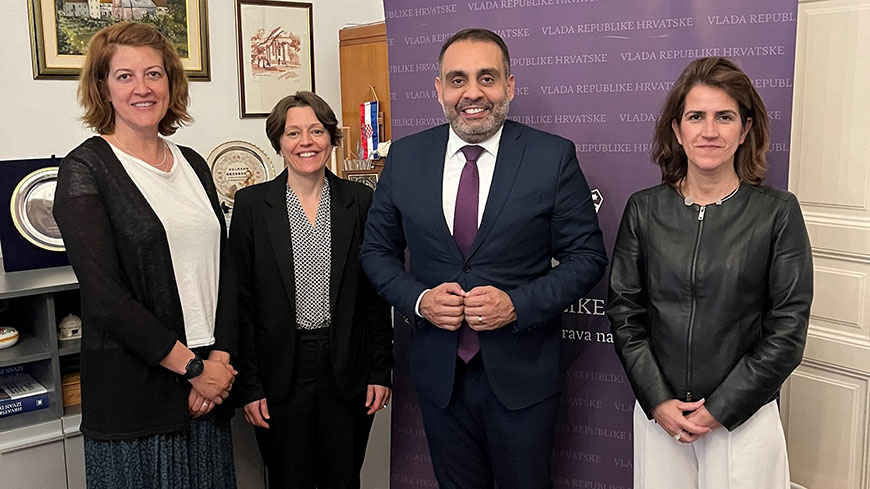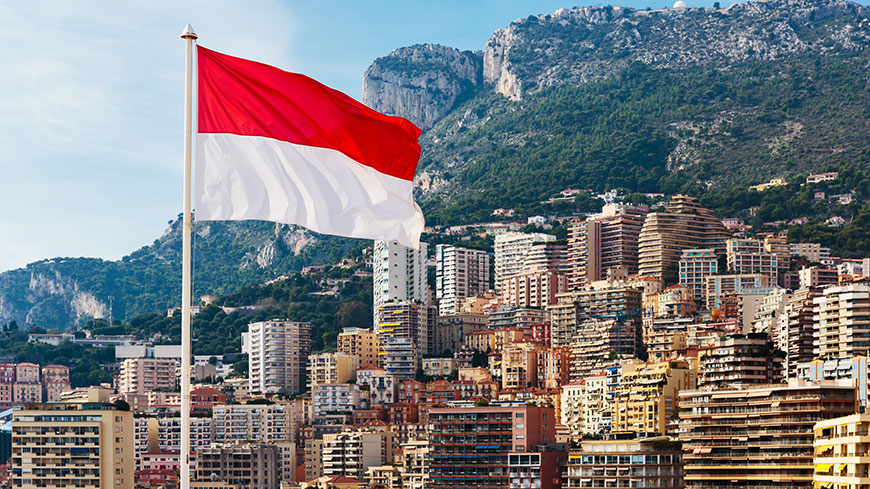A delegation of the Council of Europe’s Group of Experts on Action against Trafficking in Human Beings (GRETA) carried out an evaluation visit to Latvia on 7-11 April 2025 as part of the fourth evaluation round of the Convention on Action against Trafficking in Human Beings.
This evaluation round of monitoring the implementation of the Convention focuses on vulnerabilities to human trafficking and measures taken by States Parties to prevent them, detect and support vulnerable victims, and punish the offenders. This includes the use of information and communication technology (ICT), which brings structural changes to the way offenders operate and exacerbates existing vulnerabilities. In addition to the new thematic focus, GRETA examines how the main recommendations made in its third evaluation report have been implemented. Prior to the visit, the Latvian authorities provided a reply to GRETA’s questionnaire for the fourth evaluation round.
During the visit, the GRETA delegation met Mr Jānis Bekmanis, Deputy State Secretary of the Ministry of the Interior, Ms Beate Barkāne-Iļjenkova, Head of the Office of the Minister of the Interior, and Ms Agnese Zīle, National Anti-Trafficking Co-ordinator. Meetings were also held with representatives of the Ministry of Justice, the Ministry of Welfare, the Ministry of Culture, Ministry of Education and Science, the Ministry of Health, and the Ministry of Foreign Affairs. Further, the delegation met officials from the State Police, the State Border Guard, the Office for Migration and Citizenship, the State Labour Inspectorate, the State Employment Agency, the Financial Intelligence Unit, the Child Protection Centre, the Social Integration Foundation, the Court Administration, the Justice Academy, the General Prosecutor’s Office, and a judge from the Supreme Court. Meetings were also held with Members of Parliament and the Ombudsman Office.
In addition, the GRETA delegation met representatives of the Riga Municipality Welfare Department and Riga’s Orphan’s and Custody Court, as well as the local social services and Orphan’s and Custody Court in Ropaži.
The GRETA delegation held separate meetings with representatives of non-governmental organisations and trade unions. Discussions were also held with representatives of the International Organization for Migration (IOM) and the United Nations High Commissioner for Refugees (UNHCR).
In the course of the visit, the delegation visited the “Lighthouse Transition Care” centre for young people leaving foster care, a day centre for refugees and homeless persons and a crisis centre for families and children operated by the Salvation Army in Riga. Further, GRETA visited an asylum reception centre and the immigration detention centre in Mucenieki.
The visit was carried out by Ms Antoaneta Vassileva, First Vice-President of GRETA, and Mr Luka Maderić, Second Vice-President of GRETA, who were accompanied by Ms Teresa Armengol de la Hoz of the Secretariat of the Convention.
Following the visit, GRETA will prepare a draft report which will be sent to the Latvian authorities for comments. GRETA will subsequently adopt a final report which will be published.
See also: GRETA and Latvia



